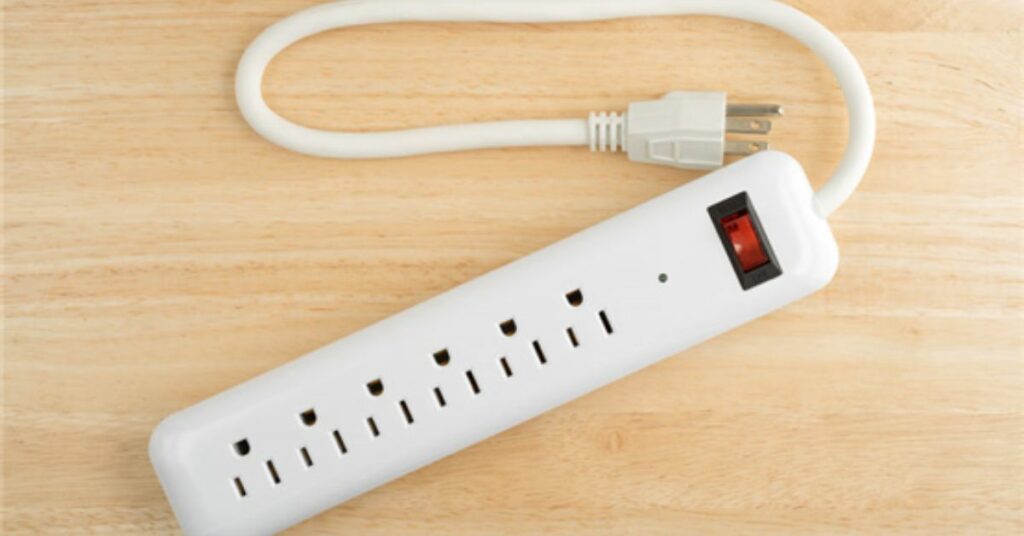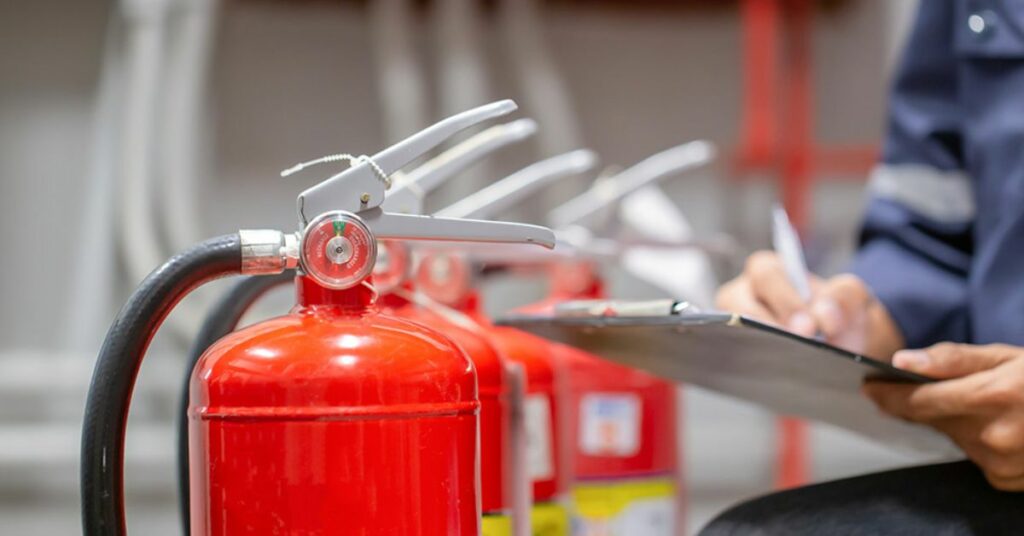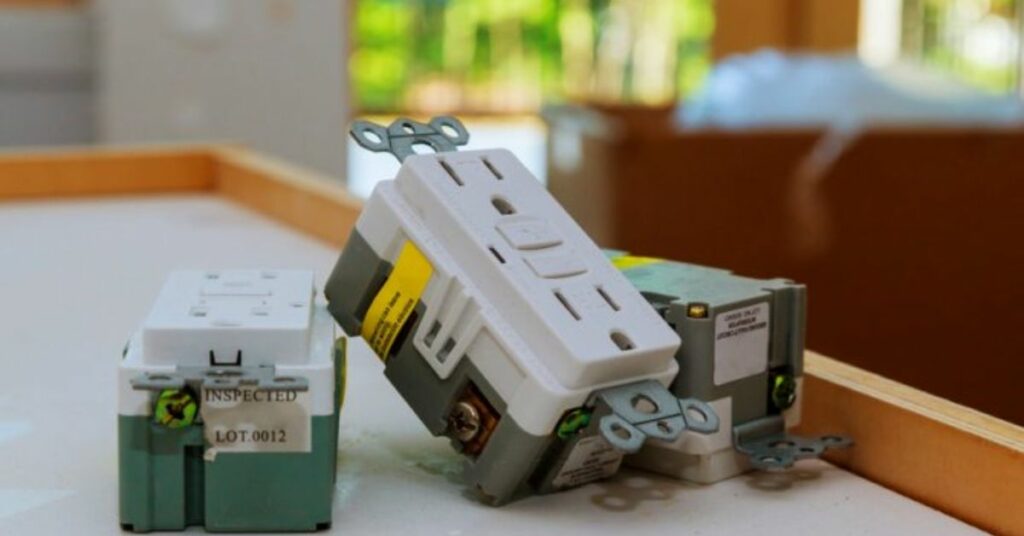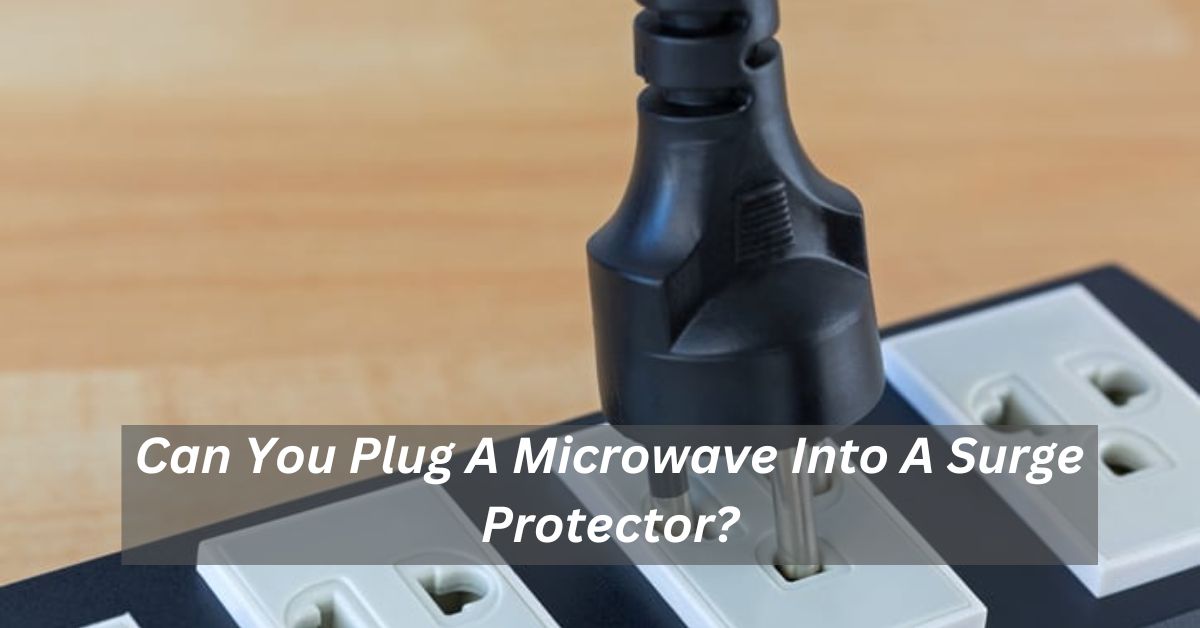Can you safely plug your microwave into a surge protector? Is it safe or not?
Yes, it is safe. Because surge protectors are designed to safeguard electronic devices, microwaves draw substantial power.
In this article, we’ll explore the potential risks and benefits of using a surge protector with your microwave.
Understanding the power requirements of a microwave:
Understanding your microwave’s wattage is vital for safe and efficient cooking. Microwaves range from 600 to 1,200 watts or more, and higher wattage means faster, more even cooking.
Match your cooking times and power levels to your microwave’s wattage for optimal results and to prevent electrical circuit overloads. This knowledge ensures safe and effective microwave use for various cooking tasks.
What is a Surge Protector?
A surge protector safeguards your electronics from sudden voltage spikes or surges in your home’s electrical system, including small appliances like microwaves.
Power surges, often caused by lightning or grid fluctuations, can harm a microwave’s sensitive components. A microwave-specific surge protector is essential to protect your appliance and extend its lifespan.

Some surge protectors offer additional features like timers, adding convenience to daily routines and conserving energy. Overall, investing in a surge protector for your microwave is crucial to ensure the longevity and dependable performance of this frequently used kitchen device and all other electronics in your home.
Read More: Is Ironstone Microwave Safe?-Comprehensive Guide
How surge protectors work?
Surge protectors are vital for safeguarding electronic devices from power surges, not just for computers and TVs but also for smaller appliances like microwaves.Microwaves, with their high-energy usage and complex circuits, are prone to damage from sudden voltage spikes caused by lightning or electrical issues.
Surge protectors, with technology like metal oxide varistors (MOV), detect and redirect excess voltage, preserving the microwave’s components and extending its lifespan.
Additionally, surge protectors prevent overheating and fire hazards, making them a crucial safety feature when using microwaves regularly.
Read More: What Gas Stations Have Microwaves?-Complete Guide!
Risks and benefits of using a surge protector:
Surge protectors are valuable devices designed to shield electronic equipment from voltage spikes and surges, but they come with risks and benefits.
Benefits:
- Electronics Protection:
The primary benefit of surge protectors is their ability to safeguard electronic devices from voltage spikes. This protection extends the lifespan of your electronics and ensures they function properly.
- Fire Prevention:
Surge protectors can prevent electrical fires caused by power surges. They redirect excess energy away from devices, reducing the risk of overheating and potential fire hazards.

- Convenience:
Surge protectors offer multiple outlets in a single device, allowing you to plug in numerous electronic devices. That reduces clutter and simplifies cable management.
Risks:
- Not Foolproof:
Surge protectors are not guaranteed to protect against all types of surges, especially those caused by lightning strikes directly on the power lines. A direct lightning strike can overwhelm surge protectors.
- Limited Lifespan:
Surge protectors have a finite lifespan. Over time, their protective components may wear out, reducing their effectiveness.
- Overloading:
Plugging too many devices into a surge protector can overload it, defeating its purpose and potentially causing overheating or fire risks.
Read More: Name A Food That Is Often Cooked In A Microwave-The Ultimate Guide
Can You Plug a Microwave into a Surge Protector?
Plugging your microwave into a surge protector is not recommended due to the appliance’s high power demands.Microwaves draw significant power, and using a surge protector can lead to overloading, tripping, or even overheating, potentially causing fire hazards.
It’s safer to follow the manufacturer’s guidelines and connect your microwave directly to a dedicated wall outlet to ensure its safe operation and minimize electrical risks in your kitchen. Prioritizing safety over convenience is the key to worry-free cooking experiences.
Tips for using surge protectors with microwaves:
1. Select a High-Quality Surge Protector:
Invest in a surge protector with a high joule rating, indicating the protector’s capacity to absorb surges. Look for reputable brands and models designed for heavy-duty appliances.
2. Use a Dedicated Outlet:
Whenever possible, plug the surge protector into a dedicated wall outlet. Avoid sharing the outlet with other high-power appliances to prevent overloading.

3. Regularly Inspect the Surge Protector:
Periodically inspect the surge protector for any signs of wear or damage. If you notice wear and tear, it’s essential to replace it to maintain optimal protection.
4. Avoid Overloading:
Be mindful not to overload the surge protector by connecting too many devices or high-power appliances to it. Know its power rating and capacity.
5. Replace When Necessary:
Surge protectors have a limited lifespan. If they have been exposed to numerous surges or show signs of wear, replace them to maintain effective protection.
Read More: Microwave Cord Too Short-Understand And Solutions!
Faqs:
1. Can I plug my microwave into a surge protector?
Yes, you can plug your microwave into a surge protector.
2. Is it safe to use a surge protector with a microwave?
Yes, using a surge protector with a microwave is safe and can provide added protection against power surges.
3. Will plugging my microwave into a surge protector affect its performance?
No, plugging your microwave into a surge protector should not affect its performance.
4. Do all surge protectors work the same way with microwaves?
Most surge protectors are designed to work with various appliances, including microwaves. Just make sure the rating of the surge protector is appropriate for the power requirements of your microwave.
5. Can plugging a microwave directly into an outlet damage it?
Plugging your microwave directly into an outlet does not necessarily damage it, but it leaves it more vulnerable to power surges that can potentially cause harm.
Read More: Do Truck Stops Have Microwaves?-Complete Guide!
Conclusion:
In conclusion, plugging a microwave into a surge protector is generally not recommended. While surge protectors are designed to protect electronics from power spikes and surges, microwaves have high power demands that can exceed the capacity of most surge protectors.
This can cause the surge protector to overheat and fail, putting your microwave and other electronics at risk. Furthermore, some microwave manufacturers explicitly advise against using surge protectors with their appliances.




